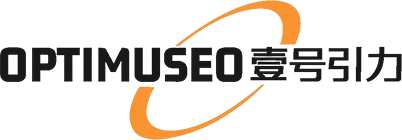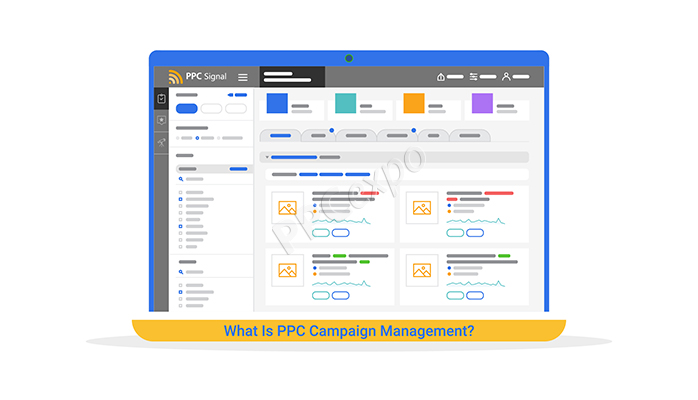You have just made a decision. You clicked on a link that brought you to this page because you wanted to learn more about PPC campaign management and become a more efficient PPC marketer.
And, you made the decision to stay on the page and continue reading.
These tiny micro-decisions happen constantly. Sometimes, it's a decision that is almost automatically made subconsciously. In other words, you may not even be aware of all the decisions your brain is making throughout the day.
Many of them. Before you even open your computer and start managing your PPC campaigns, you have already made thousands of decisions.
Then, the floodgates of decisions really open.
PPC campaign management requires constant tweaking and adjusting to the latest changes in your performance metrics. This leads to countless decisions that must be made regularly.
All of these decisions become overwhelming on many levels. This is known as decision fatigue.
Decision fatigue is when you make too many consecutive decisions, or you have too many choices at once.
As you will learn in this discussion, decision-making results in a fatigue effect. Since PPC managers have to make a large number of decisions regularly, decision overload and choice fatigue are real dangers that may hinder your productivity and performance.
This discussion will focus on the causes and effects of decision overload and choice fatigue, particularly how they impact PPC marketers, and how to prevent them.
If you dream of becoming a more efficient PPC manager, then you are in the right place.
## Part 1: The Challenges of PPC Campaign Management
To understand how to become a more efficient and successful PPC manager, we first need to address the challenges that marketing professionals face in this role.
This will provide a more comprehensive understanding and appreciation of how overwhelming PPC campaign management is, and why so many managers find themselves overwhelmed and fatigued by decision-making.
### Why are PPC Managers so Busy?
When you tell someone you are involved in online advertising and PPC marketing, they might think that most of your time is spent creating clever, attention-grabbing headlines and developing ad creatives, like a modern-day Mad Men.
In reality, most of your time as a Google Ads manager is spent managing existing ad campaigns, rather than creating new ones.
Sometimes, there is a need for new activities or components for ads (headlines, descriptions, images, product videos, etc.). However, as a manager, most of your responsibilities involve tightening the screws on each existing campaign.
Successful campaigns are more than just attractive headlines or flashy product images. Without the right keywords or audience targeting, the best ad elements are worthless.
Not to mention, you need to manage costs. With an unlimited budget, anyone can produce results.
Since you don't have unlimited resources, you need to strategically use your ad budget.
This is about maximizing your return on investment. You want your ad campaigns to earn you more money than you spend. If your ad campaigns are well optimized, you can get returns as high as $2, $3, or even $4 for every $1 you spend on Google Ads.
This high level of return is only possible when you complete many tasks and responsibilities on the PPC manager duty list.
### PPC Manager Responsibilities: Brief List
PPC management is a very broad term, covering a wide range of responsibilities.
To understand how PPC managers find themselves struggling with decision overload, you need to start by listing the responsibilities and tasks that belong to the role.
- Managing and organizing keywords, as well as evaluating each click cost bid.
- Planning and creating new ad copies, including visual elements like images, animations, or videos.
- Researching the market, understanding significant changes in competitors and/or consumer behavior, as well as new policies or changes on the advertising platform you choose (such as Google Ads).
- Segmenting audiences into logical customer roles.
- Developing and launching new PPC campaigns.
- Monitoring, analyzing, and adjusting existing campaigns to guide them in the right direction.
- Paying close attention to competitors' strategies and constantly devising counter-strategies.
- Creating reports, charts, and other useful tools to showcase results to stakeholders, team members, or clients.
- Managing budgets, personnel, and other typically limited resources.
- Attending meetings and collaborating with other marketing managers to develop cohesive marketing strategies.
This is just a partial list, and what's worse is that each item contains several smaller, time-consuming tasks.
For example, keyword management can be broken down into all of the following smaller tasks:
- Research new keyword opportunities.
- Plan keywords based on seasonal and current search trends.
- Adjust bids for existing keyword targets to maximize return on investment.
- Pause or delete underperforming keywords.
- Exclude words from the negative keyword list that are not relevant to the campaign.
- Replace underperforming keywords with new ones.
- Maintain negative keywords
As these tasks occur frequently, Google Ads managers are constantly under pressure.
### Why PPC Management is Overwhelming: Constant Change
PPC management would be more feasible if it didn't involve constant change.
Essentially, PPC marketing is a dynamic strategy. Your ad campaigns are always changing, moving, and fluctuating.
Google Ads not only regularly changes its features and policies, but you also need to consider the patterns and changes in how internet users search and interact with ad information.
Moreover, how your competitors execute their PPC strategies also impacts your results.
These are just some of the factors that can lead to your campaigns frequently fluctuating. Seasonality, your own strategies, and global pandemics are also factors that can affect campaign performance, positively or negatively.
It is this constant element of change that makes PPC management so overwhelming. Each responsibility on this lengthy list needs to be completed regularly.
Not all elements of PPC marketing can be set and forgotten, at least not for long.
For many professionals, PPC management feels like a tightrope act. You are always striving to balance all of these responsibilities.
You must make quick decisions continuously and shift your focus from one task to another.
Time is a crucial component!
If you do not act quickly enough and make the right decisions at the right time, performance will suffer.
### Speed and Timing are Critical
To reiterate: time is a key component of successful PPC marketing.
Changes happen so quickly and so frequently that managers need to make responses faster.
This means responding before a change or pivot actually occurs.
"But how do PPC managers deal with things that haven't happened yet? Are they fortune tellers?"
PPC managers can't actually predict the future (sorry to be the bearer of bad news). However, you could argue that they do have a crystal ball—the data.
Every time your PPC performance metrics fluctuate, it always yields data.
Data is crucial for running better campaigns, as it brings insights. Actionable insights are essentially clues supported by data on how to improve your campaigns.
You can categorize most insights into opportunities or risks. Capitalizing on opportunities can bring positive changes to your campaign's performance. Meanwhile, avoiding and mitigating risks can prevent negative changes from occurring.
Spotting insights early and taking action is crucial. Likewise, the PPC environment is always changing, so the longer you wait, the less relevant and valuable the information becomes.
If you discover opportunities too late, your competitors likely have already swooped in and taken advantage. As a result, the space you can capitalize on becomes smaller.
Similarly, when you let potential risks continue unnoticed, they can cause more significant damage than if you had uncovered the problem early.
A leak under the kitchen sink isn't a problem. However, the longer you neglect and fail to address the issue, the more damage the leaking could cause.
Efficient, successful PPC managers strive to be proactive in their changes rather than reactive to what has already happened.
### Complexity of Data Leads to More Overload and Fatigue
Data isn't easy to analyze. The more data you have, the harder it is to interpret. Coupled with the fact that, as mentioned earlier, PPC data is transient, you have quite a complicated problem on your hands.
Insights can range from simple changes to more complex trends, shifts, and patterns. Typically, complex insights bring more significant and valuable opportunities or risks.
Of course, there's a trade-off. Complex insights require deep analysis, often involving multiple dimensions and metrics. This level of analysis is not easy and takes a substantial amount of time manually.
This creates another layer of fatigue and overload that PPC managers must overcome.
With campaigns generating data at a constant and rapid pace, your spreadsheets can grow exponentially.
You can go from a few rows and columns to thousands in the blink of an eye. When spreadsheets grow to this size, the digital wall becomes overwhelming. Your eyes and your brain don't know where to focus their attention.
Data analysis involves many decisions and choices to be made. What data are you analyzing? How are you analyzing it? What charts are you using to showcase your findings?
## Part 2: Decision Overload and Choice Fatigue: Why it Happens and How to Address it
Decision overload, analysis paralysis, and choice fatigue are the real impacts hindering your success as a PPC manager.
Success as a PPC manager isn't about getting the most work done in a given amount of time.
It's about making the right decisions and accomplishing the right tasks.
To achieve this goal, you need to manage your decisions and focus on making decisions that will have the most significant impact.
It's important to remember that your ability to make the right decisions is limited. There's only so much gas in your brain's tank!
When you can use PPC Signal to automate the less critical decisions, you can save time and energy for critical decisions.
You will always make wiser decisions, bringing higher performance, greater success, and easier PPC campaign management.
## Part 3: PPC Signal - Treating Data and Decision Fatigue
Since automation is a key factor in overcoming decision overload, PPC Signal is the crème de la crème of AI machine learning tools.
In this section, you will learn about PPC Signal tools and their ability to provide curated signals to managers. These signals are the solution to your data and decision paralysis.
### What is PPC Signal? How Does PPC Signal Work?
PPC Signal is an artificial intelligence-driven tool with deep machine learning capabilities developed to assist PPC campaign managers in dealing with heavy workloads.
The core function of PPC Signal is to continuously monitor your PPC account to understand trends, changes, anomalies, and other patterns that AI brain deems interesting or noteworthy.
Then, using your campaign's historical data, the system analyzes each change to determine its importance and whether it represents a risk or opportunity for your account.
Risk is the data change where action is required. If no action is taken, performance will decline.
For example, PPC Signal might detect that the Cost Per Click (CPC) value for a particular PPC keyword has been steadily increasing over the past few days. Suddenly, the cost for the keyword jumps from a few cents to several dollars!
If you don't take action on this risk, you might overspend on the affected keyword.
On the other hand, an opportunity is a data change that reflects potential performance improvement if action is taken.
For example, PPC Signal might notice that the click-through rate for a specific keyword group is suddenly much higher than usual. If your PPC goal is related to increasing website traffic, this is a good opportunity.
By increasing bids for these keywords, you can take advantage of increased click-through rates.
## What do Signals Look Like?
When PPC Signal alerts you to an opportunity or any other insight, it packages the data, visual changes, and other important information into a digestible "signal."
These are mainly the main PPC Signal dashboard. At the top, you can see there are 33 "activity" signals. These are the signals that managers have yet to resolve.
You can scroll through all activity signals or select tabs to filter by ad campaigns, ad groups, keywords, devices, locations, and the time of day.
As you can see, each signal contains various information. If we take the first signal, for example:
The CPC Magic Is Broken And Breaks The Fix!
First, PPC Signal highlights the key metrics affected by the change. It also includes information such as the direction of the trend, start time, and the importance of the change.
In this example, the key text is highlighted in red to reflect that it is a risk signal. If it were an opportunity, these words would be highlighted in green.
PPC Signal also shows you the size of the impacted dimension. In this example case, this signal concerns the "Forerunner Sales" activity on mobile devices.
When you click the "Explore" button on the signal, it expands to show you more details.
This view showcases all the information at the top and shows an interactive detailed chart of the changes. You can even add additional data metrics to see how other areas of the affected activity have been impacted.
You can also choose to view this data in table form, which can then be exported to Excel or Google Sheets.
## Review Signals: Benefits of PPC Signal
PPC Signal sets itself apart from other PPC management tools by giving you fully curated, complete insights.
Other PPC management tools often provide half-baked, incomplete insights. This means that managers need to spend their own time and resources to fully understand and use the information.
This is not what you want. After all, you're trying to save time and solve your decision overload problems.
A fully curated, complete signal is one that almost does not require effort by the manager to understand and implement the signal.
Usually, where other tools fall short is the classic quantity-quality ratio. As you've come to learn, having too many choices isn't always a good thing.
When a tool bombards you with every fluctuation or semi-significant data change, it isn't more confusing than the raw data itself.
The fact is, not all insights carry the same value. You don't want to know everything that's happening, just what's important.
Since your PPC management tool is constantly monitoring your account, you can think of it as a 24/7 nanny. You don't want the nanny calling every time your account drools, giggles, or hides a Cheerio under the couch.
You only want to be notified when something important happens.
PPC Signal pays special attention to the quality of every signal it presents. It prioritizes alerts based on the importance of each risk or opportunity.
Additionally, the PPC Signal interface offers multiple filtering options for you to remove further insights and signals that are irrelevant to your PPC marketing goals.
This is about filtering out the noise that would fatigue and overload your brain and only leaving the signals that are important to you and your business.
### PPC Signal Recommended Actions
Another drawback of other PPC management tools is that they do not provide any clues on what to do next with the insights they provide.
Whenever you find insightful information about how to improve your PPC campaigns or clues, the next step is taking action!
In other words, how will you handle this information?
Similarly, when your PPC management tool doesn't provide this additional information, it means you have to analyze insights yourself and decide (yes, another decision) what to do next.
If the insight is very complex and involves multiple dimensions and metrics, it can be challenging to know what action to take next.
Balancing possible options and deciding on the next action to take can be time-consuming.
On the other hand, PPC Signal does enter into the next step.
When you click on "Explore" insights from the PPC Signal homepage, you will see a "Take Action" button on the next screen.
By pressing this button, PPC Signal will recommend the next steps you can take to address the signal.
You can even make some changes to your ad campaigns directly from the PPC Signal interface.
This means you do not have to make any decisions on how to parse the signals. You simply need to accept the recommendations from PPC Signal!
By removing yet another decision from the list, you can continue focusing on the most important decisions and avoid the harmful effects of choice fatigue and decision overload.
### Wrapping it Up
Decision overload, analysis paralysis, and choice fatigue are all factors that hinder your success as a PPC manager.
Success as a PPC manager isn't about getting the most work done in a given amount of time.
It's about making the right decisions and completing the right tasks.
To achieve this goal, you need to manage your decisions and focus on making decisions that will have the most significant impact.
It's important to remember that your ability to make the right decisions is limited. There's only so much gas in your brain's tank!
When you can use PPC Signal to automatically execute less critical decisions, you can save energy and time for important decisions.
You will always make wiser decisions, bringing higher performance, greater success, and easier PPC campaign management.



